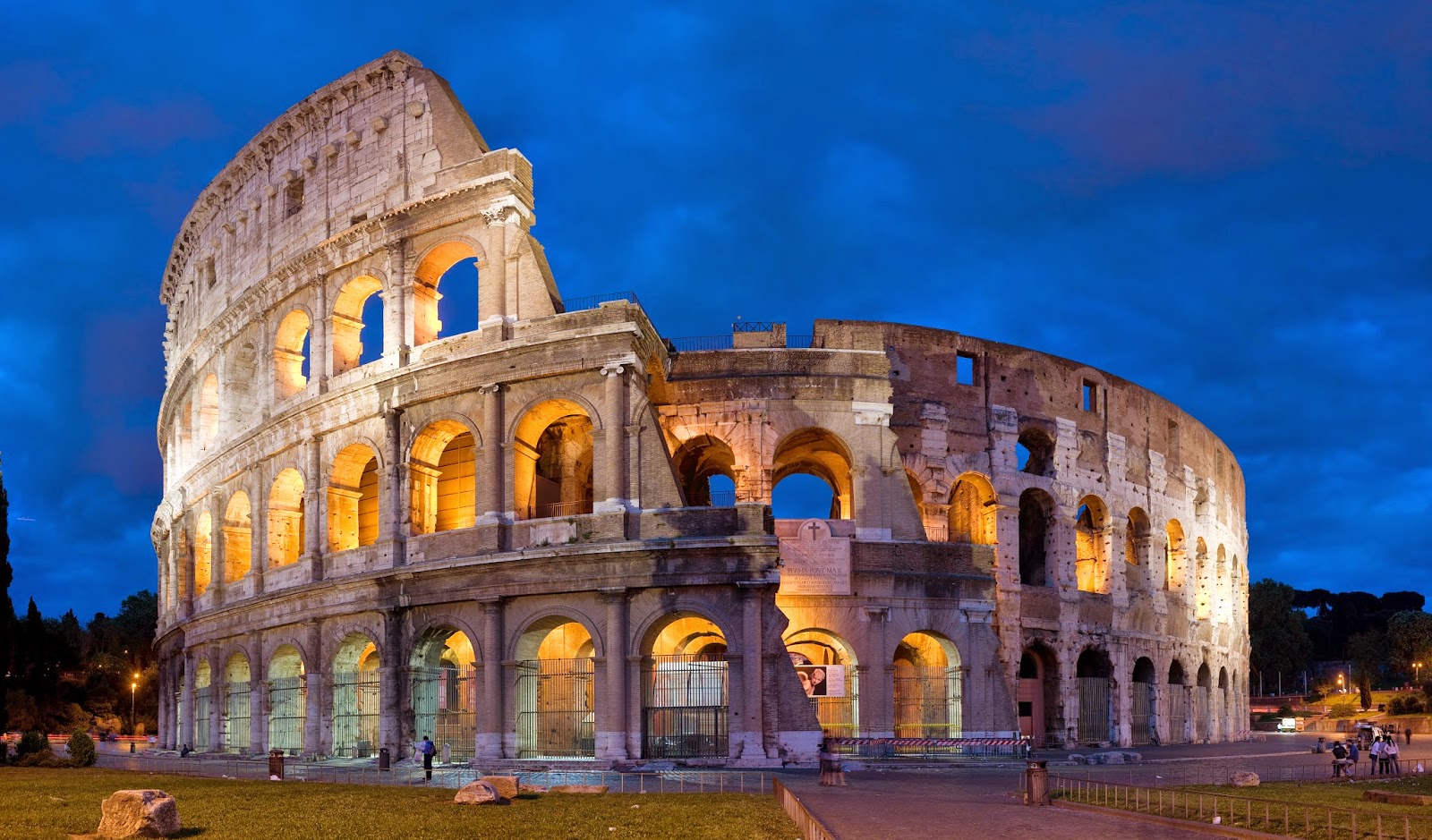The Colosseum (Italy)
The Colosseum is an amphitheatre in the center of the city Rome, in
Italy. It is also known as the Flavian Amphiteatre. It is the largest
amphitheatre in the world and considered to be one of the greatest Roman
architecture and engineering works. It was used for a variety of events
and could hold 50,000 people. Earthquakes and stone robbers left it in
ruins, but part of it still stands today.
Interesting Facts about The Colosseum
- It is also known as the Flavian Amphitheatre because it was built during
the Flavian dynasty. It got the name Colosseum because of a statue
that was located alongside the amphitheatre called ‘the colossus of
Nero'.
- Construction began in 72 AD under the emperor Vespasian.
- Titus, Vespasian's son and successor completed the construction in 81
AD. It took only 9 years to build.
- It took 60,000 Jewish slaves to build the Colosseum. It was built of stone and concrete.
- Domitian, Vespasian's youngest son, made modifications to the
amphitheatre during his reign from 81-96 AD. He built underground
tunnels to hold slaves and animals. He also built a gallery to the top
for additional seating.
- Several different events were held in the Colosseum including gladiator
contests, mock battles and animal hunts, and dramas that were based on
Classical mythology. If they held a mock sea battle they flooded the
Colosseum with water.
- The amphitheatre was used for entertainment for 390 years. During this
time more than 400,000 people died inside the Colosseum. It's also
estimated that about 1,000,000 animals died in the Colosseum as well.
- They Romans had the earliest form of a Skydome. If it rained they stretched a red canvas over the entire Colosseum.
- After
the Colosseum was partially destroyed by the earthquake, some of the
fallen pieces were used to build St Peter's Basilica.
- The Colosseum has become a symbol against capital punishment. The death
penalty was abolished in Italy in 1948. Today, any time anyone in the
world has their sentence of death commuted (overturned) or they are
released, the lights in the night time illumination of the Colosseum
change from white to gold. This color change also occurs whenever a
jurisdiction abolishes the death penalty as well.
The Interior of the Colosseum







No comments:
Post a Comment